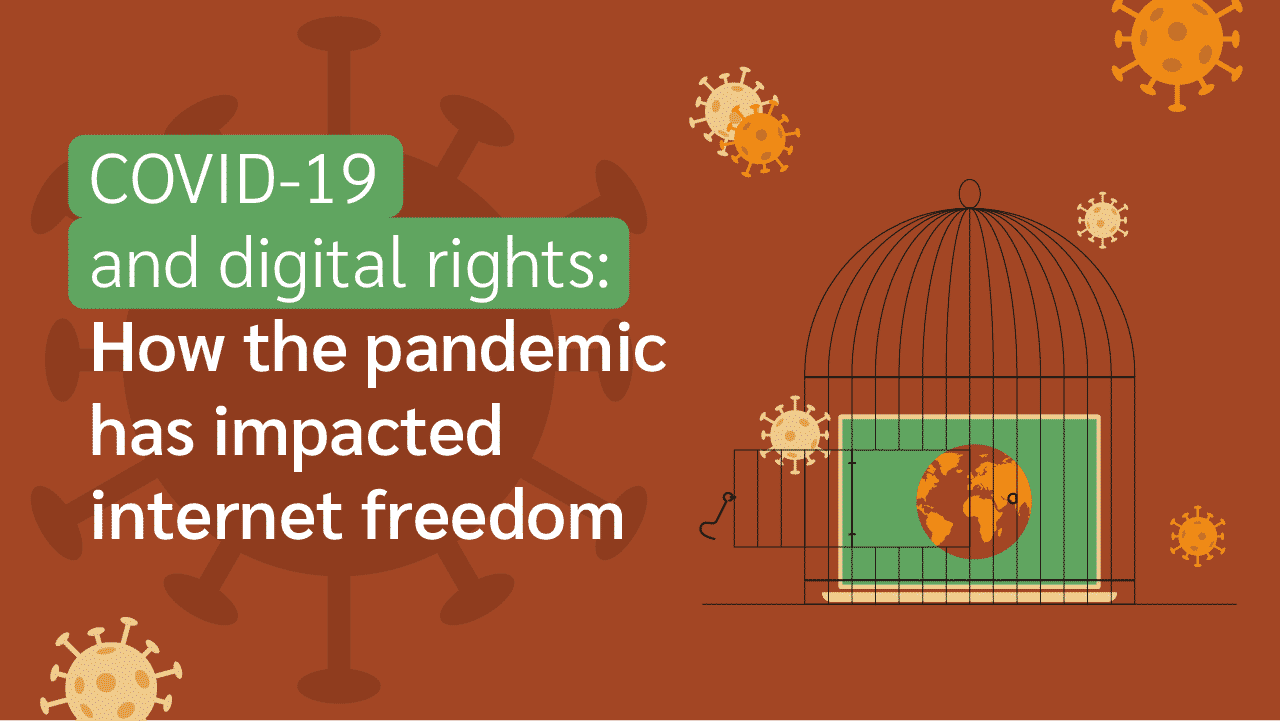COVID-19 and Digital Rights: How The Pandemic Has Impacted Internet Freedom
Internet freedom has always been met with some resistance by governments across the world. People’s right to view whatever they want, or express themselves on the internet, has been suppressed.
The COVID-19 pandemic also seems to affect global internet freedom. Since the spread of the virus, internet rights and freedom has increasingly deteriorated. In the past year, data shows that global internet freedom has been stifled continuously. This shows a disregard for people’s constitutional rights worldwide.
COVID-19 lets people discover more about the internet’s connectivity. More people carried out business and personal dealings online than ever before. However, there is a growing risk of human rights violation and exploitation with more online human activity.
Governments worldwide have seen the pandemic as an opportunity to monitor, censor, and manipulate online traffic. Some countries have even developed new technologies for social control.
COVID-19 and the Digital Space
In the wake of the coronavirus, business meetings, classes, politics, and medical consultations have shifted to being conducted on one form of social network or the other. However, for internet freedom, 2020 was a terrible year that we can highlight in three major trends:
First, authorities restricted access to information, using the pandemic as an excuse. Political leaders shut down several online news outlets and arrested people on bogus charges such as the spread of fake news.
Some leaders went as far as restricting certain social/religious groups from internet access. In the early days of the pandemic, many countries experienced spikes in the number of infected people. To keep an eye on the number, government/health officials needed to carry out surveillance. However, many governments saw the pandemic as the perfect reason to have a more intense surveillance program and developed technologies that give them more surveillance powers.
Secondly, there is now an increased use of big data, biometrics, and artificial intelligence (AI) by state and non-state actors to monitor, collect and analyze people’s data.
The last major trend is the governments’ increased efforts towards achieving “cyber sovereignty.” Many countries have implemented internet laws that limit information flow to the citizens.
While the public and private sectors have worked together to create a safe and secure internet space, this move by the authorities set a hurdle for development as more people are restricted from accessing necessary information online.
Why Is Cyber Sovereignty So Important to the Government?
Governments and their agencies exist to serve and protect our rights offline and online. However, when an administration seeks sovereignty over its cyberspace, it tries to control user rights. They will have the power to infringe on people’s basic rights without being held accountable.
The Chinese regime is a great example of national cyber sovereignty. The government restricts access to foreign services and has also developed technology for intrusive surveillance and internet censorship.
Similarly, Russian legislation provides the government with an internet kill switch in a national emergency.
In response to growing human & internet rights violations, some tech companies are now refusing to share sensitive data with authorities.
As companies and firms refuse to comply with government demands, several countries have banned certain international services from operating within their jurisdiction, and others now insist that services must store user data within their borders.
With more stakeholders speaking up about human rights violations, the best move would be tackling such issues and replacing them with democratic and rights-promoting structures & policies well-suited for internet users worldwide.
More governments and internet stakeholders cooperating to improve the security and freedom of the internet will thwart Russia and China’s campaign for cyber sovereignty and prevent other forms of internet regulations and control.
A Look At the Global Decline in Internet Freedom Per Country
For the past decade, the rate of global internet freedom has been moving downhill. According to Freedom House, in 2020, the condition of internal rights in 26 countries worsened, while 22 countries experienced improvements.
Myanmar and Kyrgyzstan had the lowest numbers, with both countries cutting off internet connection and controlling online content. Nigeria, Ecuador, and India were also some countries that have deliberately interfered with internet connection.
Meanwhile, Ukraine, Sudan, and Zimbabwe experienced improvements in human rights online. Iceland is still the best nation that upholds human rights, and China holds the record for being the least free nation online.
Any Improvements?
With the reign of Omar al-Bashir ended by civilian protests and military action, internet freedom in Sudan has improved. Current laws now protect citizen’s rights to expression and internet access.
In Ukraine, the new administration doesn’t block websites like the previous one, and it has also removed the requirement of a telecommunications license.
In 2019, the government of Zimbabwe restricted internet access in the wake of protests. However, there has been no repeat of such actions since then. Experts, however, worry that the nation’s government could revert to its old ways after a while.
Law institutions have also stepped up to challenge the legitimacy of internet shutdowns, website blocking, and the extent of government surveillance in countries like Indonesia, Sudan, Pakistan, and Germany. This shows that government authorities can still be held accountable.
Conclusion
COVID-19 not only affected the global health sector, but our lifestyles also had to adjust to fit the current realities. Across the world, people are not only faced with health protocols and restrictions, but we now also have to deal with the fight for internet freedom as governments try to take more control, ignoring the rights they are supposed to protect.
